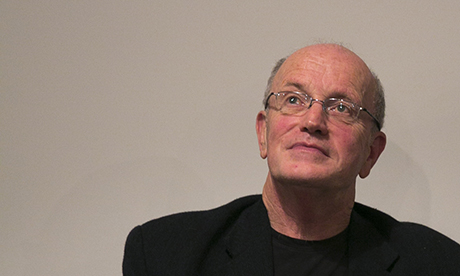My Favourite London Devils, Iain Sinclair, book review: ‘mapping space through memories’

Hackney author Iain Sinclair. Photograph: Eleonore de Bonneval
Iain Sinclair is a writer obsessed with writing.
This is nowhere more apparent than in his latest publication My Favourite London Devils, a collection of portraits, interviews and literary critiques of authors he has met and those whose work he has stumbled upon under stacks of dusty paperbacks in second-hand bookshops.
Giving his book a London twist, these authors all share a connection to the capital. And so this is Sinclair’s attempt to piece together a personal anthology of the literature of the city, of those writers who are “ventriloquising London and its whispers”.
Sinclair gives the impression of having known everyone and of having read everything; at times this means that his anecdotes edge uncomfortably towards the arena of after-dinner conversation, stories recounted that can be of interest to no one but the parties involved.
In one section J. G. Ballard recounts tales of his string of “white Russian nannies” and trips to the cinema with “the chauffeur”, and the whole thing feels stuffy, staid and a little too much like a fly-on-the-wall documentary in the Old Boy’s Club.
Nevertheless, it is not really the authors, nor Sinclair and his anecdotes, which protagonise this book. Rather it is London that takes centre stage, and the prose feels fresh, lively and insightful every time it is mentioned. Sinclair writes that “London was the engine. You could feel the beat of it”, and the same is true for My Favourite London Devils: the city is the engine, the heartbeat of this collection.
Here, spanning the last two centuries, the capital is presented in fact and fiction. We are led from the London of Sherlock Holmes to the one we experience today, captured in a rather poignant section on the 2005 London bombings. With a gentle mix of humour and nostalgia, the changing face of the city is hinted at as we learn that the pub where Jack Kerouac enjoyed stout and Welsh Rarebit is now an outlet of the fast-food chain Leon.
Hackney is the site of some wonderfully evocative descriptions: the borough is “defined by being undefinable”, “a staging post on the journey to respectability” and Dalston is conjured in scent as “the heavy drench of jerk chicken [gave] way to the scented fug of Kurdish football clubs”.
In spite of a general tendency to overwrite (“the graved voice of centuries pitched antiphonally against the chuckles”), there is certainly poetry to be found in Sinclair’s literary journey through London: “Eastward I stumbled, under quilted stars, along the river, towards distant recollections of a house in Hackney”.
And, without a doubt, Sinclair’s intention of capturing the city through the works and writers that mean something, have meant something, to him, is an exciting one. It is a task that could quite easily be taken on by any city dweller – one could plot one’s own urban landscape according to songs listened to on street corners, or bad Tinder dates successfully escaped from.
In this sense, My Favourite London Devils can be read as a personal invitation to map space through memories. I got a bit lost in Sinclair’s literary map, but the idea really is lovely and if you can, or are inclined to make the effort to keep up with his references, he will take you on a journey through the city, a journey through his past and the past of the writers he has known; the ones who sit on his bookshelves, the real London landmarks of his mind.
My Favourite London Devils is published by Tangerine Press. RRP: £10. ISBN: 9781910691175
